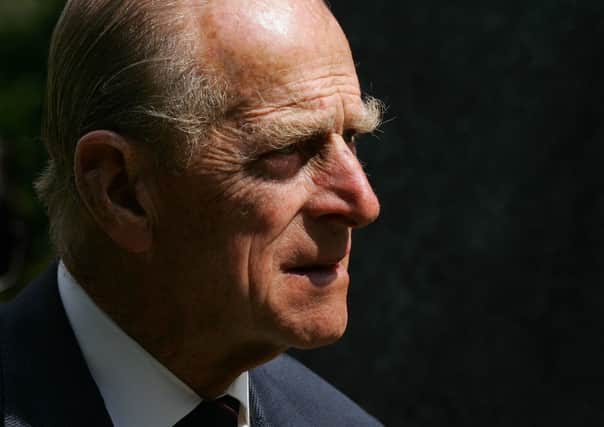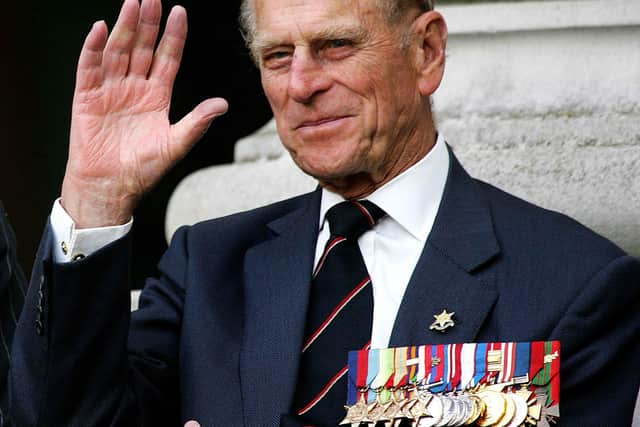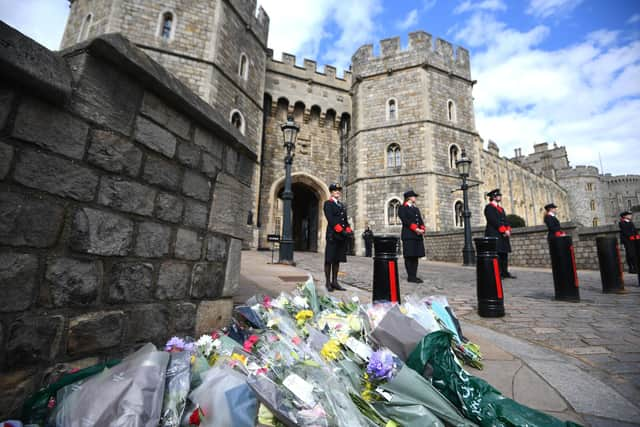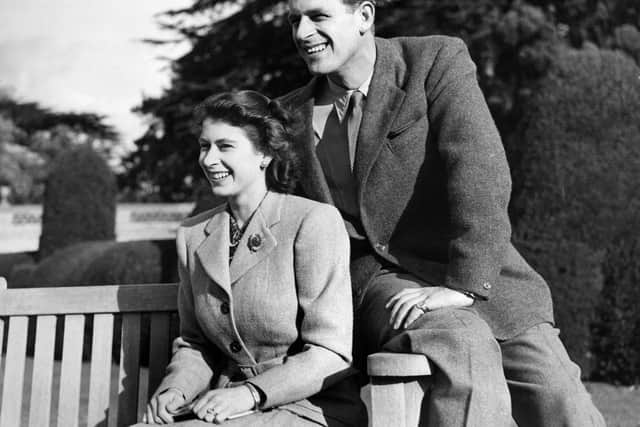Prince Philip: Nation mourns the Queen’s ‘rock’ and consort – The Yorkshire Post says


The depth of her loss cannot be overstated – and was reflected by the very personal tone of the Buckingham Palace statement confirming the Duke of Edinburgh’s death after a recent illness and just weeks before his 100th birthday. As husband and consort, Philip’s love, devotion and steadfastness were unfailing. The strength of their marriage was the foundation upon which the Queen’s record-breaking reign stood.
At a luncheon to mark their golden wedding anniversary in 1997, the Queen paid Philip a tribute that was as heartfelt as it was unusually revealing, saying: “He is someone who doesn’t take easily to compliments. But he has, quite simply, been my strength and stay all these years and I and his whole family, in this and many other countries, owe him a debt greater than he would ever claim, or we shall ever know.”
Advertisement
Hide AdAdvertisement
Hide AdHer words were characteristically wise and perceptive. Despite his eight decades in the public eye, Philip’s contribution to both the longest reign in British history and to the life of country and Commonwealth alike were often overlooked as tributes to the 99-year-old, and messages of condolence to the entire Royal Family, pour in from around the world.


His role in defining how a modern constitutional monarchy works and remains relevant to changing times made him a figure of enormous significance in post-war Britain and into the 21st century.
If, above all else, the monarchy remains a comforting symbol of stability and continuity against a backdrop of unsettling events and social upheaval, it is in large measure thanks to Philip’s counsel and support that the Queen has been able to make it serve that purpose with such outstanding success over so long a period.
It was Philip who challenged stuffy and archaic royal protocols in the early years of her reign to bring the monarchy closer in tune with the second half of the 20th century.
Advertisement
Hide AdAdvertisement
Hide AdHis characterisation of the Royal Family as “The Firm” demonstrated a profound understanding of the relationship it must have with the public in order to retain affection and respect. His insistence was that it should be a family that the people could admire as it worked hard for the benefit of the country.


He recognised the risks of fuelling republicanism if it did not, which accounted for his ire towards irresponsible younger members during the difficult 1990s, when the bond between monarchy and people showed signs of strain.
He led by example. After the Queen, Philip was, until relatively recently, the hardest-working member of the family, becoming patron or president of more than 800 good causes. Into his 90s, the number of engagements he undertook was phenomenal before he took a back seat. His last official duty was a special Covid-19 socially distanced ceremony at Windsor Castle last summer in which he transferred his role of Colonel-in-Chief of The Rifles to the Duchess of Cornwall while the official photo of Philip with the Queen on their 73rd wedding anniversary, looking at congratulatory messages, has even more poignancy.
Philip held no constitutional role beyond membership of the Privy Council, bestowed by George VI, who recognised the challenges he would face, noting on his wedding day that the position of consort was in many ways more difficult than that of sovereign.
Advertisement
Hide AdAdvertisement
Hide AdThere was no recent precedent to guide Philip. The role he created and fulfilled so successfully was his own invention, born of intelligence and insight into the needs of the Queen, both unstintingly supportive and useful in its own right.


As consort, Philip enhanced the monarchy, and extended the scope of its work by pouring his considerable energy and ebullience into a wide range of activities independent of the Queen – though always with her support.
In doing so, he broadened the monarchy’s appeal, reinforced its credentials as being in step with changing times, and used its prestige to produce tangible benefits.
He used his position to be a cheerleader for British industry, at home and abroad, and championed closer links between higher education and business.
Advertisement
Hide AdAdvertisement
Hide AdHe was forward-thinking in his support for conservation and the promotion of both sport and outdoor activities as character-building for the young.
The Duke of Edinburgh’s Award Scheme, though sometimes derided, could point to having engaged millions of young people throughout Britain and the Commonwealth in helping their communities and extending learning beyond the classroom.
It was a measure of the fondness in which Philip was held by the country that his sometimes irascible personality came to be regarded as one of his most endearing traits, not least his propensity for gaffes, which enlivened public life – and caused unintended hilarity – for decades. The public recognised the essential warmth that lay behind the occasionally gruff exterior.
His indomitable energy, even into old age, unswerving sense of duty, and devotion to the country that took him in as an effectively stateless child made him a pillar of the most successful reign in British history, and an immense force for good.
Advertisement
Hide AdAdvertisement
Hide AdLike his wife, Prince Philip was not born to the role he came to occupy. And like her also, he rose to the challenge magnificently. Britain has much to thank him for, and is the poorer for his passing. We mourn him.
Support The Yorkshire Post and become a subscriber today. Your subscription will help us to continue to bring quality news to the people of Yorkshire. In return, you’ll see fewer ads on site, get free access to our app and receive exclusive members-only offers. Click here to subscribe.
Comment Guidelines
National World encourages reader discussion on our stories. User feedback, insights and back-and-forth exchanges add a rich layer of context to reporting. Please review our Community Guidelines before commenting.